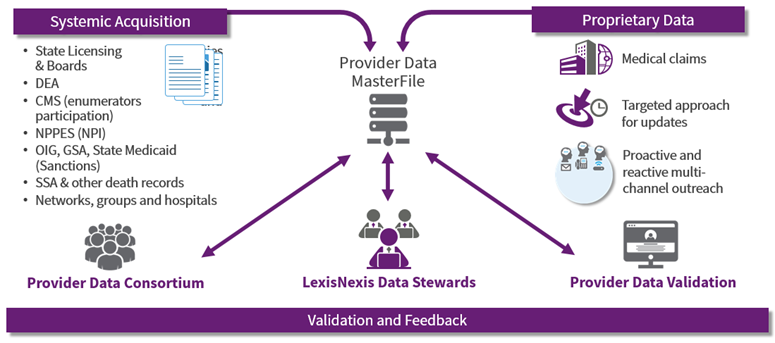Trick Attributes to Seek When Choosing a Database Carrier
Selecting a database supplier is a critical decision that can considerably affect your company's data and operations administration technique. Among the necessary attributes to take into consideration are scalability options, which guarantee that your system can adapt to growing demands.
Scalability Options
When selecting a database service provider, understanding scalability options is essential to making sure that the selected option can fit future growth. Scalability refers to the ability of a database system to increase its ability and efficiency in feedback to raised need. There are two primary sorts of scalability: horizontal and vertical.
Upright scalability, or "scaling up," includes improving a single web server's sources, such as CPU, RAM, or storage. This approach can be straightforward and cost-efficient for smaller sized applications yet may reach a restriction where additionally upgrades are as well costly or impractical.
Straight scalability, or "scaling out," includes adding extra web servers to distribute the lots. This method permits better versatility and can accommodate substantial boosts in information volume and user web traffic (database provider). It is particularly valuable for cloud-based data source services that can dynamically allocate sources based upon demand

Protection Procedures

When evaluating security measures, consider the implementation of security methods (database provider). Data-at-rest and data-in-transit security are necessary to ensure that sensitive details continues to be safeguarded, also in case of a safety and security breach. Additionally, seek carriers that supply strong verification systems, such as multi-factor authentication (MFA), to better boost gain access to control
Regular protection audits and conformity with industry criteria, such as GDPR or HIPAA, are a sign of a company's commitment to data protection. In addition, inquire regarding their incident response strategy; a robust strategy can reduce the influence of any prospective security case.
Performance Metrics
Evaluating efficiency metrics is vital for companies to make sure that their chosen data source company meets functional requirements. Secret efficiency metrics include feedback throughput, time, and scalability, which jointly identify the performance of database operations under differing loads.
Action time is critical, as it shows just how quickly the database can refine queries and return results. Organizations must look for metrics that indicate average reaction times throughout peak and off-peak hours. Throughput, commonly gauged in transactions per second (TPS), supplies understanding into the database's capability to take care of high quantities of demands without performance degradation.
Scalability examines the data source's ability to expand with the organization's needs. A robust database supplier should demonstrate upright and straight scaling capacities, permitting for seamless adjustments as demands fluctuate. Furthermore, comprehending latency, specifically in dispersed systems, can aid companies review the responsiveness of the data source throughout various geographical areas.
Consumer Assistance
Trustworthy consumer assistance is a foundation of effective database monitoring, supplying organizations with the support needed to resolve concerns and enhance efficiency. When choosing a database service provider, evaluating the degree of client support they supply is necessary. A robust support system must include several channels of interaction, such as phone, email, and live conversation, making certain that individuals can access help whenever they require it.
Additionally, receptive support groups that are offered 24/7 greatly boost the dependability of the data source service. Prompt action times and effective resolution of problems can significantly minimize downtime and boost overall productivity. It is additionally beneficial to take into consideration the schedule of devoted assistance personnel, that can offer customized assistance based on a company's specific requirements.

Pricing Structure
When considering a data source service provider, the rates structure is a crucial aspect that can significantly affect an organization's budget plan and overall method. A adaptable and transparent rates model is crucial for straightening the database sets you back with business requirements - database provider. Organizations needs to assess whether the rates is based on usage, per customer, or a flat rate, as each design can generate different monetary implications gradually
It is vital to assess any added prices associated with the carrier's services, such as data storage costs, purchase costs, and support fees. Some carriers may use tiered rates, allowing scalability as the organization grows, while others may enforce rigorous restrictions that can become costly as data demands boost.
Moreover, organizations ought to think about the long-lasting worth of the data source option. While reduced first rates can be enticing, they might not make up future upgrades, upkeep costs, or assimilation prices. Performing a complete cost-benefit analysis will assist determine the most suitable rates framework that stabilizes scalability, assistance, and performance, inevitably ensuring that the picked data source provider lines up with the organization's operational and economic goals.
Verdict
In final thought, picking a data source carrier requires cautious factor to consider of numerous essential features. Assessing efficiency metrics allows the recognition of effective data sources, and available customer support enhances the general customer experience.
Selecting a database supplier is an essential decision that can web link substantially affect your organization's data and operations management approach.When selecting a database service provider, comprehending scalability options is important to making certain that the picked option can fit future development. When picking a data Click This Link source company, examining the level of client support they provide is essential.When thinking about a database provider, the prices structure is a crucial aspect that can dramatically influence an organization's budget plan and overall technique. Carrying out a thorough cost-benefit evaluation will certainly aid determine the most ideal pricing framework that stabilizes assistance, scalability, and efficiency, ultimately guaranteeing that the selected data source provider aligns with the organization's financial and functional goals.